As the industry continues to expand in Australia, bodies throughout the field are heavily investing in AI solutions. This comes with aims to deepen engagement with the customer, improving exploration and production and reduce running costs.
Predictive analysis
Applications fall into two categories: short-term developments which are delivering results in the here and now, and longer-term possibilities.
In the short-term, the first goal is to use AI predictive analytics to improve business performance and keep operating costs to a minimum. Australia’s biggest oil and gas producer, Woodside Energy, has placed itself at the forefront of development. It uses a cognitive assistant—nicknamed Willow—to sort through millions of files to locate relevant information which can help engineers do their job. For example, if an engineer wants to
know the risks of drilling a particular well, they can ask Willow for in depth information to help with the risk assessment.
It harnesses the power of big data which is becoming increasingly vital in the offshore industry. Oil and gas companies—as in other sectors—are generating vast amounts of information. That data can provide a huge amount of information about operations, but only if it is analysed correctly. AI devices, such as Willow, enable operators to access more information and to make better decisions. The result will be a reduction in costly downtime which can have a major impact on profits.
Robotic exploration
If that represents the low hanging fruit, many of the most exciting gains can be found in more sophisticated next generation technologies. Exxon—for example—are turning to one of NASA’s brightest minds to help improve deep water exploration.
Brian Williams was one of the biggest names behind the Mars Curiosity Rover. Now working at MIT, he is collaborating with Exxon to develop a marine exploration robot to help monitor conditions in deep water. The slow-moving robot would hover a few feet above the ocean floor, allowing it to safeguard the ecosystem. It can monitor conditions and track changes over time to show how operations might impact the ecosystem.
The oil and gas industry is under growing pressure to reduce its impact on the environment—a challenge the sector is looking at robotics to solve. Robots can provide a clearer picture of an ecosystem and help companies manage their overall footprint.
However, it also has potential in the tapping of new and uncharted sources. Sensors attached to the robot could identify seeping hydrocarbons, enabling companies to identify new sources and opportunities.
Siemens are also pushing into remote controlled technologies. They have developed what they call a modular production facility for oil. This is an automated remotely controlled platform which can target even small oil pockets in a financially sustainable way. Until now, smaller pockets such as these were not financially viable for big giants. However, harnessing automation technology such as this allows them to drive down the cost of production.
They are also harnessing the power of AI to protect against cyber attacks. As companies of all kinds generate more and more data they are becoming increasingly tempting targets for cyber criminals. Attack vectors such as ransomware are growing rapidly and AI is at the centre.
The company partnered with Darktrace to develop an AI powered immune system to protect IT systems from attack. They use artificial intelligence systems to learn what the business is like and target those files which do not operate in the same way. These will stand out and the immune system will therefore identify them as suspect. This differs from the current approach in which defence systems use data about previous attacks to then identify a suspicious program.
Rapid development
The potential is enormous, but there is still plenty of work needed to turn it into a reality. To make this technology work, energy companies are harnessing the skills of experts in the advanced tech fields. French oil giant Total, for example, is working with Google to look at ways in which AI algorithms can be best harnessed for use in the offshore oil and gas sector.
The two sides will be combining their expertise: engineers from Total will work alongside software developers from Google—who will be assessing new AI technologies and how they can be applied to the offshore oil and gas environment. As things stand, they are still assessing the digital landscape to see how new AI technologies can be deployed in offshore exploration and production before entering into a formal partnership.
Start-up support
Tech start-ups also represent valuable partners. Their agile and flexible infrastructure enables the delivery of bespoke systems which can deliver the data oil and gas giants need as quickly as possible. These start-ups view the oil and gas industry both as a potentially lucrative client base and a source of support.
Earlier in the year, for example, BP Ventures injected $200 million into the tech start-up Beyond Limits, which focuses on AI cognitive computing. The company is currently developing technology that focuses on the harsh environment of space for applications here on Earth. For BP Ventures, it represents an opportunity to overhaul the way in which they search for oil and gas reserves.
Artificial intelligence represents an area of enormous potential, a lot of which still remains to be further proven. It can increase the amount of information available to operators and help them analyse it more effectively. Beyond that, it can deliver advanced automated vehicles to explore deep beneath the ocean and protect fragile habitats. In the future, we can expect exploration to become more affordable, effective and kinder to the environment. With such scope for improvement, the chances are the industry has only just begun to visualise the full extent of what it can offer.
Register free now for AOG 2018 to see it all!
The Australasian Oil & Gas Exhibition & Conference runs from March 14-16 at the Perth Convention & Exhibition Centre.

